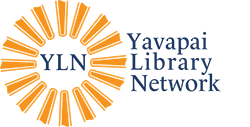The hacking of the American mind : the science behind the corporate takeover of our bodies and brains
(Book - Regular Print)
Author
Published
New York, New York : Avery, [2017].
Physical Desc
344 pages : illustrations ; 24 cm
Status
Dewey-Humboldt Town Library - NF - Nonfiction Books
152.4 LUSTIG
1 available
152.4 LUSTIG
1 available
Prescott Public Library - NF - Nonfiction Books
152.42 LUS
1 available
152.42 LUS
1 available
Sedona Public Library - NF - Nonfiction Books
152.42 LUSTIG
1 available
152.42 LUSTIG
1 available
More Details
Published
New York, New York : Avery, [2017].
Format
Book - Regular Print
Language
English
Notes
Bibliography
Includes bibliographical references and index.
Description
"We all know that we can't put down our sodas or our cell phones. But what if these cravings are engineered--by design? And what if these desires actually cause damage--not just to ourselves, but to our families, our friends, and our entire society? While researching the toxic impact of sugar on our health for his New York Times best seller Fat Chance, Robert Lustig made a discovery that reaches beyond the politics of food. Our seemingly innocent addictions are far from it--they are biochemical, and they are damaging our bodies and our brains. With his trademark wit and incisiveness, Lustig reveals how these chemicals interact with one another to drive our behaviors, and how Big Business uses the science of addiction to keep us hooked--to our detriment, and for their profit. Dopamine is the 'reward' neurotransmitter that tells our brains 'This feels good, I want more.' Yet too much dopamine leads to addiction. Serotonin is the 'contentment' neurotransmitter that tells our brains 'This feels good, I have enough.' Yet too little serotonin leads to depression. Ideally, both should be in optimal supply. But too many of our simple pleasures have morphed into something else--a 6.5-ounce soda has become a Big Gulp; an afternoon with friends has been replaced by 1,000 friendings on Facebook. What we think we want, what we're told will bring us happiness, is just a clever marketing scheme to lead us to consume more and more. Wall Street, Madison Avenue, Las Vegas, Silicon Valley, and Washington, DC., have gotten inside our heads, exploiting newly discovered brain physiology and chemistry to confuse and conflate pleasure with happiness. Our behaviors are not our own, because our minds have been hacked. But there are ways to reclaim our health and our lives. Using that same brain science, Lustig offers solutions to defend ourselves against Corporate America, and to reengage in the pursuit of happiness, even in the face of overwhelming opposition. And the time to take action--for ourselves, for our children, and for all of society--is now."--Jacket.
Description
Loading Description...
Also in this Series
Checking series information...
Copies
| Location | Call Number | Status |
|---|---|---|
| Dewey-Humboldt Town Library - NF - Nonfiction Books | 152.4 LUSTIG | Find It Now |
| Prescott Public Library - NF - Nonfiction Books | 152.42 LUS | Find It Now |
| Sedona Public Library - NF - Nonfiction Books | 152.42 LUSTIG | Find It Now |
| Yavapai College Prescott - LIMBO - Items being donated to other libraries | BF575.H27L83 2017 | Find It Now |
Reviews from GoodReads
Loading GoodReads Reviews.
Citations
APA Citation, 7th Edition (style guide)
Lustig, R. H. (2017). The hacking of the American mind: the science behind the corporate takeover of our bodies and brains . Avery.
Chicago / Turabian - Author Date Citation, 17th Edition (style guide)Lustig, Robert H.. 2017. The Hacking of the American Mind: The Science Behind the Corporate Takeover of Our Bodies and Brains. Avery.
Chicago / Turabian - Humanities (Notes and Bibliography) Citation, 17th Edition (style guide)Lustig, Robert H.. The Hacking of the American Mind: The Science Behind the Corporate Takeover of Our Bodies and Brains Avery, 2017.
MLA Citation, 9th Edition (style guide)Lustig, Robert H.. The Hacking of the American Mind: The Science Behind the Corporate Takeover of Our Bodies and Brains Avery, 2017.
Note! Citations contain only title, author, edition, publisher, and year published. Citations should be used as a guideline and should be double checked for accuracy. Citation formats are based on standards as of August 2021.
Staff View
Loading Staff View.

